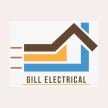what is electric shower? What’s the differences between power shower vs Electric shower.
Install Electric Shower

An electric shower is a type of shower that heats water using an internal heating element. It is directly connected to the electrical supply in your home and does not require a hot water tank or boiler to operate. When you turn on an electric shower, cold water flows into the unit, where it is heated instantly and then delivered through the showerhead.
On the other hand, a power shower is a shower system that combines both hot and cold water supplies. It typically requires a separate hot water tank or a boiler to provide the hot water. The power shower uses a pump to increase the water pressure, resulting in a more forceful shower experience.
The main differences between an electric shower and a power shower are:
Heating method:
An electric shower has its own heating element and heats water on demand, while a power shower relies on preheated water from a separate hot water source.
Water pressure:
Electric showers generally have a built-in pump that can increase water pressure, but it is not as powerful as the pump used in a power shower. Power showers are designed to provide a higher water flow rate and stronger pressure.
Installation:
Electric showers are relatively easier to install since they only require a cold water supply and an electrical connection. Power showers, on the other hand, require both a hot and cold water supply, as well as a pump for boosting water pressure. They may involve more complex plumbing work.
Cost:
Electric showers are usually more affordable to purchase and install compared to power showers. Power showers require additional components such as a pump and hot water source, making them more expensive.
When choosing between an electric shower and a power shower, consider factors such as your water pressure requirements, available plumbing infrastructure, and budget. Electric showers usually have an integrated temperature control dial or buttons that allow you to adjust the water temperature to your preference.
They provide instant hot water, so you can easily achieve your desired temperature. Power showers, on the other hand, rely on the hot water supply from the tank or boiler, which may require some time for the water to reach the desired temperature. Electric showers are generally more water-efficient compared to power showers. Since they heat water on demand, there is less wastage of hot water.
Electric showers and power showers are two different types of shower systems commonly used in households.
Electric Showers:
Electric showers are standalone units that heat water using an electric heating element. They are connected directly to the cold water supply and do not require a separate hot water source. Here are some key features of electric showers:
Heating:
Electric showers have an internal heating element that heats the water as it passes through the unit. The temperature can be adjusted using controls on the shower unit.
Installation:
Electric showers are relatively easy to install since they don't require a hot water supply or a boiler system. They only need a cold water supply and an electrical connection.
Water pressure:
Electric showers are designed to work with mains water pressure, so the water pressure depends on the incoming supply. If the pressure is low, the shower's performance may be affected.
Water temperature:
The temperature of the water in an electric shower can be adjusted to suit individual preferences. However, the flow rate may decrease if the temperature is set too high.
Cost:
Electric showers are generally more affordable to purchase and install compared to other types of showers. They also tend to be more energy-efficient since they only heat the water as needed.
Power Showers:
Power showers, on the other hand, are a combination of a mixer shower and an electric pump. They require a hot and cold water supply and work by blending the water to the desired temperature before boosting the flow rate with the electric pump. Here are some key features of power showers:
Heating:
Power showers use hot water from a separate hot water source, typically a boiler or immersion heater, along with cold water. The water temperature is controlled by adjusting the hot and cold water flow.
Pumping:
Power showers incorporate an electric pump that boosts the flow rate of the water, providing a stronger and more invigorating shower experience.
Water pressure:
Power showers are designed to work with low-pressure gravity-fed systems, where the water is stored in a tank above the shower. The electric pump helps to increase the pressure for a more powerful shower.
Water temperature:
The temperature control in power showers is similar to mixer showers. The blend of hot and cold water can be adjusted to achieve the desired temperature.
Cost:
Power showers tend to be more expensive than electric showers due to the inclusion of the electric pump and the requirement for a hot water supply. They may also consume more energy since they rely on a separate hot water source.
It's important to note that both electric showers and power showers have their own advantages and considerations. The choice between them depends on factors such as water pressure, budget, and available plumbing infrastructure in your home.






Comments
There are no comments for this story
Be the first to respond and start the conversation.